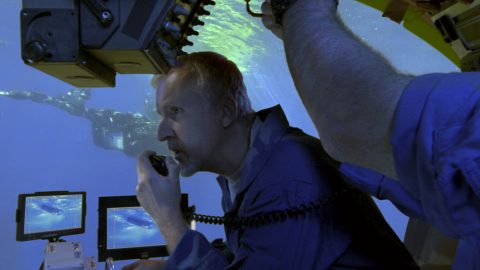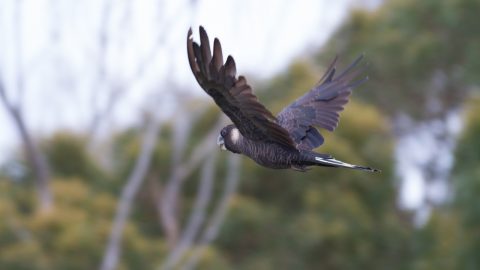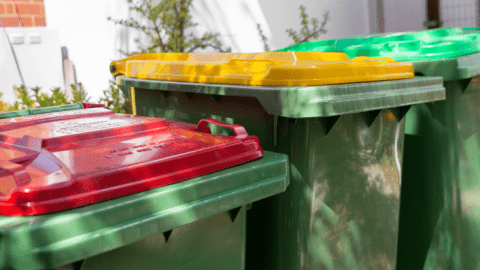Reading Dr Andrew Leigh’s most recent book, ‘How Economics Explains the World: A Short History of Humanity’, I came upon a description of a time in history that seemed akin to Western Australia in 2025. Leigh is a former economics professor and now assistant federal minister for competition and treasury.
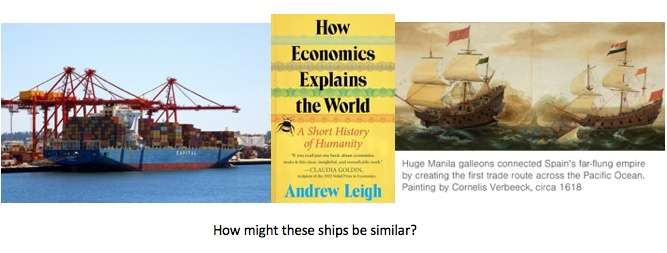
Leigh describes the ‘Age of Discovery’ in the period 1500 to 1800; a period where Spain’s discoveries of gold and silver in Mexico and Bolivia became vital Spanish imports. Yet, he writes:
…the massive influx of gold and silver would ultimately harm [Spain’s] economy. Precious metals were the currency of the day, so the arrival of ships laden with gold and silver was the equivalent of a modern government printing too much money. Prices of goods and services rose. Imports grew and exports shrank. Tellingly, the region where the precious metals arrived, Andalusia, suffered earliest. Spanish manufacturers of ships, rope and silk found themselves unable to compete on the world market and their businesses collapsed. In 1500, Spain was one of the world’s wealthiest nations. Two centuries later, it was a backwater. An echo of Spain’s experience is the modern-day resource curse, in which valuable mineral assets can end up impoverishing a nation.
Compare this to Western Australia’s current predicament of continuing resource extraction, population growth, inflation and housing shortages. Could we be on a similar track to Old Spain? Has Western Australia been captured by the resources industry? If so, when will we free ourselves of the net?
All of this when anyone swimming at Leighton Beach this summer already knew that our ocean’s are the warmest on record, as confirmed by the Bureau of Meteorology in its annual climate statement for 2024 which was released last week.
And then there is the dominant role the current WA State Labor government has played in ensuring Federal Labor’s Nature Positive Laws have been put on ice once more. Does this expose all Australians to staying on the same path, and not taking the alternative path needed to meet our sustainability goals?
Western Australians and our Country have been sacrificed to economic interests without sufficient explanation as to why these interests are more important than the wellbeing of our communities. It appears our leaders are prioritising their chances of re-election rather than acting to prevent nature loss and reduce greenhouse emissions. This is short term thinking; not good government.
How did this come to pass? Or as Rachel Carson, an American marine biologist, writer and conservationist said in Silent Spring:
The public must decide whether it wishes to continue on the present road, and it can do so only when in full possession of the facts.
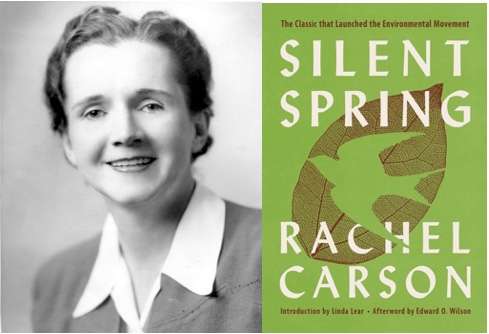
Silent Spring is the book in which Rachel Carson documented the environmental harm caused by the indiscriminate use of DDT in the US in the early 1960s.
THE PRESENT ROAD – THESE ARE THE FACTS
WA Treasury recently issued a pre-election financial projection statement ahead of the upcoming 8 March 2025 WA State election. The State’s operating surplus has been revised up $100 million to $3.2 billion dollars, thanks to increases in iron ore royalty revenue, payroll tax and stamp duty. So, all in all our economy is in good shape.
How many Western Australians, however, feel in good shape? What about the state of our greenhouse emissions, our biodiversity and our climate?

WA greenhouse gas emissions 1990-2022
Data released last year shows the State’s greenhouse gas emissions continue to climb above 2005 levels, and that emissions in 2022 were 8 per cent above 2005 levels. By comparison, emissions in Queensland, another big mining state, were 35% lower in 2022 than they were in 2005. Australia’s emissions overall were 29 per cent below 2005 levels.
Although the WA State government has committed to a whole-of-government greenhouse gas emissions reduction target for 2030 of 80 per cent below 2020 levels and a net zero emissions target by 2050, the climate legislation to support these targets is yet to be brought into law.
Projections for greenhouse emissions prepared by the independent Climateworks Centre with support from the CSIRO, and commissioned by the WA state government show that WA will not be able to achieve its targets based on current policies and industry plans.

Modelling of WA’s emissions with source attribution
Modelling by Climateworks Centre projects that by 2030, WA’s emissions will be two per cent lower than the 2005 levels. By 2035, they’ll be 20 per cent under. Emissions would need to fall at twice this rate as shown in green in the graph to meet the 2030 target.
At the same time, the 2022 Threatened Species Index for WA shows that, on average, the threatened species populations represented in the index from WA decreased by 42% between 2000 and 2019.
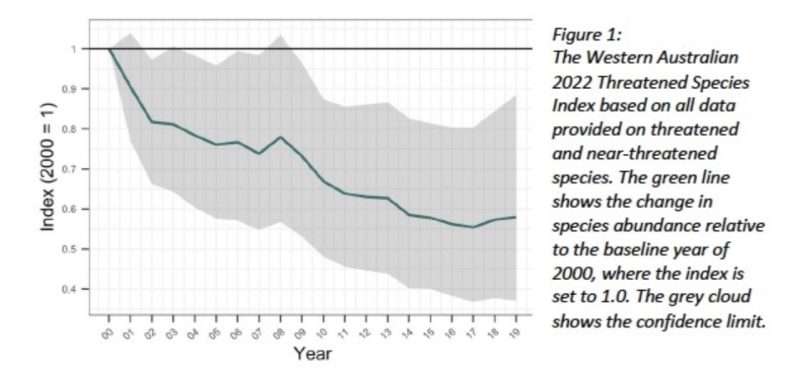
The most recent federal State of the Environment report commissioned by the Australian government and written by independent scientists was released in 2022 and looked at the overall health of every aspect of Australia’s environment. It also considered how our environment is affecting the health and wellbeing of the Australian community and economy.
The report painted a ‘particularly grim’ picture for WA, according to scientists, with mammal extinctions, bushfires and water availability highlighted as key areas of concerns. The report found all aspects of the Australian environment were under pressure and most were declining. This was due to climate change, habitat loss, invasive species and resource extraction.

Credit pen_ash on Unsplash
The budget surplus figures for the state of WA when considered with WA’s greenhouse emissions data and modelling as well as its Threatened Species Index indicate that WA is overexploiting nature in order to ensure budget surpluses. The rationale provided for doing so is that this supports jobs and incomes.
Yet we do not know at what cost this comes. GDP, government budgets and our current economic system in general all presently value nature and the environment at close to zero.
We cannot live without nature and many of us recognise this. According to research conducted by Monash University’s BehaviourWorks Australia for independent not-for-profit the Biodiversity Council and released on 31 January 2025, three-quarters (75%) of Australians support strengthening our national environmental laws.
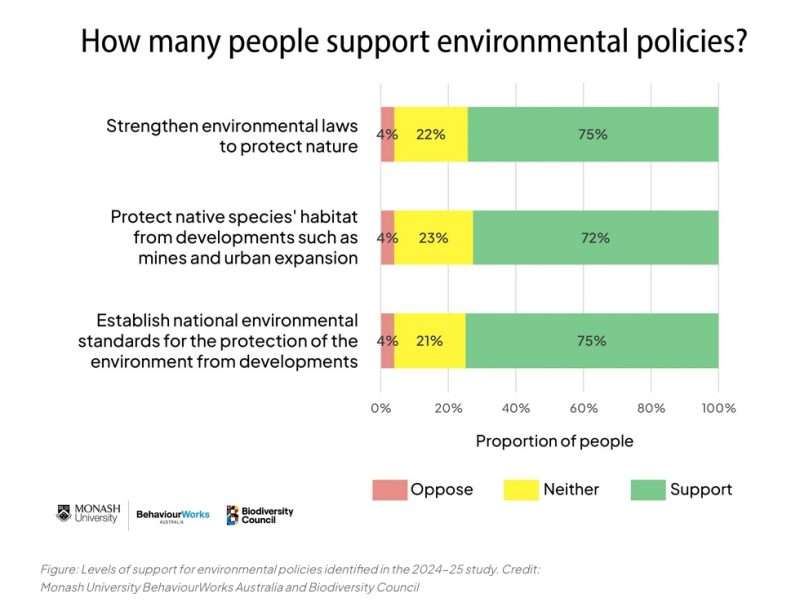
Then there are risks associated with our current road.
According to the World Economic Forum’s 2025 Global Risks Report, human caused environmental problems, including biodiversity loss and extreme weather events, are the greatest long-term threats to the global economy. The Biodiversity Council says that these findings also reflect Australian data showing that at least half of the Australian economy is dependent on nature and that Australia’s environmental problems are rapidly deteriorating.
On 12 February 2025, Biodiversity Council member and University of Adelaide economist Professor Patrick O’Connor said:
It is disappointing to see that despite being widely recognised as one of the greatest threats to economies and humanity, biodiversity loss was not put on the list of top short-term risks.
Differences in the short-term and long-term risks lists occur because people make trade-offs about what they think is most pressingly urgent right now and what could wait a bit longer.
It reflects a tendency to kick environmental problems down the road, imagining our future selves, future technology or children can fix it.
The problem with this approach is that biodiversity loss and ecosystem collapse are getting rapidly worse with every passing year, and it is vastly more expensive to restore lost biodiversity later than to stop its loss now.
Biodiversity loss has major ramifications for things like food and water supply, public health, climate resilience and tourism.
WHAT DID LABOR DO?
Earlier this month, under pressure from the WA Cook government, the Prime Minister said Federal Labor would not proceed with the legislation known as the Nature Positive Laws. This legislation had been a key 2022 election commitment by Federal Labor and at the time had the backing of the Business Council of Australia as well as environmental groups.

Stirling Ranges, WA. Credit Madeleine Cox
The objective of this proposed legislation was to create an independent federal regulator to enforce environmental laws, improve transparency, and speed up development approvals while enacting stronger nature and wildlife protections. These laws were developed in response to the second review of Australia’s federal environmental laws which was commissioned in 2019 by the then prime minister Scott Morrison and led by former chair of the Australian Competition & Consumer Commission, Professor Graeme Samuel AC.
In his report, Samuel described the existing law as ‘outdated’ and requiring ‘fundamental reform’. Further, he said:
It does not enable the Commonwealth to effectively fulfil its environment management responsibilities to protect nationally important matters. The Act, and the way it is implemented, results in piecemeal decisions, which rarely work in concert with the environmental management responsibilities of the States and Territories. The Act is a barrier to holistic environmental management which, given the nature of Australia’s federation, is essential for success.
The decision to put the legislation on ice followed pressure by WA Premier Roger Cook, as reported by the Australian Financial Review on 29 January 2025:
Mr Cook, who hosted Mr Albanese in Perth earlier [in the week of 29 January], on Wednesday warned the federal government to drop its renewed push on the EPA and lashed out at Labor backbenchers including Sydney MPs Jerome Laxale and Sally Sitou who are supporting Ms Plibersek.
‘I’ve got a message for those backbenchers…that think this legislation should go up: your standard of living, the reason why you can afford your long mac [a popular WA coffee order] and your lattes, is because of WA industry and the WA economy,’ Mr Cook said.
‘Do not for a moment think that we will stand by idly and allow you to damage our economy because, ultimately, it will damage your standard of living.’
Yet no explanation has been given for how the laws might damage the economy or our standard of living. Indeed, consistent federal environmental laws which apply across Australia would ease the regulatory burden on business and thereby the cost of doing business.
It would appear Roger Cook is forgetting that WA is the only State without a legislated emissions reduction target.
Further, Premier Cook also appears to have overlooked the changes made to the State’s environmental laws last year when WA’s Environmental Protection Authority assessment powers over major projects were changed to remove a requirement to take account of greenhouse emissions.
At the time, this seemed a defensible policy approach on the basis that Federal laws would soon be implemented. By removing the State conditions, duplication at the State and Federal level was being avoided.
Yet with the very recent step by Prime Minister Anthony Albanese to defer the Nature Positive Laws, we are left with a large gap in environmental regulation for both WA and Australia.
Also, with upcoming WA and Federal elections, there is now great uncertainty around the reform of our ‘outdated’ environmental laws. The deferral defies Graeme Samuel’s warning in 2020:
To shy away from the fundamental reforms recommended by this Review is to accept the continued decline of our iconic places and the extinction of our most threatened plants, animals and ecosystems. This is unacceptable. A firm commitment to change from all stakeholders is needed to enable future generations to enjoy and benefit from Australia’s unique environment and heritage.
It has been suggested that more industry consultation needs to happen before the Nature Positive Laws can come to pass. One wonders how much consultation is necessary when you consider the extensive consultation and submissions that were put before the Samuel Review, which commenced on 29 December 2019 and resulted in the final report being delivered to the Minister on 30 October 2020. The Nature Positive Laws have been in development since Federal Labour’s election win in 2022.
For both WA Labor and Federal Labor, all of this indicates they do not see climate and nature positive actions as being a priority.
Indeed, the facts that a former State Premier amd a former State Treasurer left politics and soon after took up positions with major resource companies rather emphasises the point. For example –
• former Labor Premier Mark McGowan is non-executive chairman of ASX listed Frontier Energy and is an adviser to BHP and Chris Ellison’s Mineral Resources.
• former Labor Treasurer Ben Wyatt is a non-executive director with each of Woodside Energy Ltd and Rio Tinto.
The questions that no Labor representative has answered yet is why do they think the resources industry is so afraid of the Nature Positive Laws, and why will a Long Mac or a latte apparently cost more in Western Australia if Nature Positive Laws are enacted?
WHY WE NEED THE NATURE POSITIVE LAWS
We needed the Nature Positive Federal laws because WA is not doing enough to reduce its greenhouse emissions and to care for and safeguard the environment. The failure to implement the nature positive laws is a modern example of the Tragedy of the Commons where shared resources are overused, and eventually depleted, as articulated by ecologist Garrett Hardin in his seminal 1968 article ‘The Tragedy of the Commons’.
Indeed, the World Wildlife Fund’s 2024 Living Planet Report details an average 73% decline in wildlife populations since 1970. It also warns that, as the Earth approaches dangerous tipping points posing grave threats to humanity, a huge collective effort will be required over the next five years to tackle the dual climate and nature crises.
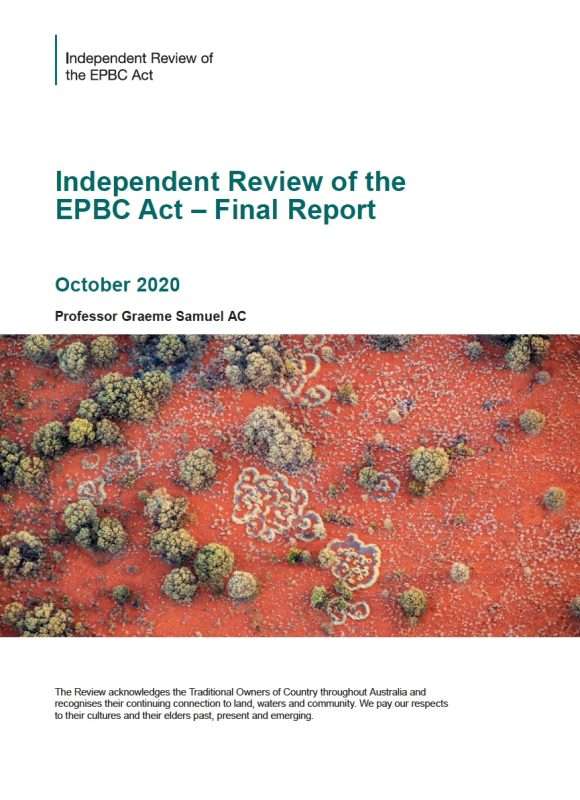
The Samuel Review of the Federal environmental laws concluded that the laws were no longer fit for purpose, and are failing to protect the Australian environment.
Whilst there have been good steps towards protecting nature such as the creation by the WA Government of the South Coast Marine Park in November 2024, as well as progress towards Australia’s renewable energy future such as the Federal Government’s Future Made in Australia policy and the New Vehicle Efficiency Standard, we continue to need strong laws which keep us moving towards a world which reduces greenhouse emissions and protects nature.

Albany Wind Farms.‘Destiny is not a matter of chance; it’s a matter of choice. It is not a thing to be waited for – it’s a thing to be achieved.’ William Jennings Bryan, American politician, 1860-1925
WE NEED TO TAKE A NEW ROAD
Listed below are the proposed reforms contained in the Nature Positive Laws as currently drafted:
• Establish a new position, Head of the Environmental Information Authority (HEIA), whose responsibility will be to improve the availability and accessibility of environmental information and data.
• A legislated definition of the term ‘nature positive’.
• The Head of the EIA will be responsible for establishing a baseline from which to measure Australia’s progress towards nature positive, and for establishing and maintaining ‘environmental economic accounts’.
• ‘State of the environment reports’ to be delivered every two years instead of the current five years.
• The establishment of a new Federal Environmental Protection Agency (EPA), our first independent Federal environmental regulator.
• Arming the new EPA with strong compliance and enforcement tools including expanded audit powers and the power to issue Environment Protection Orders.
• Significantly increased criminal and civil penalties for environmental non-compliance.
There is also a further stage of reforms which are yet to be finalised and which are proposed to include:
• New National Environmental Standards, including provision for Matters of National Environmental Significance, First Nations engagement and participation in decision-making and environmental offsets.
• Regional Plans designed to pre-identify areas for protection, restoration and sustainable development, and also to identify priority areas for action and investment.
• Conservation Planning, which will include ‘recovery strategies’ – a new statutory document for protected species and ecological communities.
These are the long-awaited environmental reforms which are now up in the air after Premier Roger Cook put the hard word on Prime Minister Anthony Albanese earlier this month.
Yet greenhouse emissions in WA continue to increase, there is no current legislated target for WA to reduce greenhouse emissions or replace them with renewable energy, and the WA state EPA does not have the power to take into account greenhouse emissions when assessing major projects.

Mt Augustus. Credit Barbara Wells
We need a different road than the road we are on. A road which takes into account the intrinsic value of nature, including to our wellbeing and communities, as well as taking into account business. The Nature Positive Laws were a step in this direction.
With these sorts of reforms Australia can both progress to nature positive and protect our economy, our livelihood and our wellbeing.
So, at the upcoming elections consider which candidate is most likely to support the Nature Positive Laws. Can Labor be held to account for their commitments to address nature positive and climate needs? Are the Coalition or any other parties any more to do so?
And for fun, play the Financial Times’ Climate game and see if you can bring the planet back within its ecological boundary.
If all of this is a lot to take in, you might like to reflect on this excerpt from Robert Frost’s famous poem, ‘The Road Not Taken’:
I shall be telling this with a sigh
Somewhere ages and ages hence:
Two roads diverged in a wood, and I –
I took the one less travelled by,
And that has made all the difference.
* By Madeleine Cox. Madeleine Cox was raised on a farm on Binjareb Noongar country and now, together with her New Zealand / Aotearoa husband, lives with her children in Fremantle / Walyalup. She loves exploring places and ideas, and connecting with people and nature. This has prompted Madeleine to start writing independently, after many years work as a corporate and government lawyer, and service on not-for-profit boards in the health and education sectors. For more articles on Fremantle Shipping News by Madeleine, look here.
~~~~~~~~~~~~~~~~~~~~~~~~~~~~~~~~~~~~~~~~
~ If you’d like to receive a copy of the sources Madeleine Cox relied on in researching and writing this article or you would like to COMMENT on this or any of our stories, don’t hesitate to email our Editor.
~ WHILE YOU’RE HERE –
PLEASE HELP US TO GROW FREMANTLE SHIPPING NEWS
FSN is a reader-supported, volunteer-assisted online magazine all about Fremantle. Thanks for helping to keep FSN keeping on!
~ Don’t forget to SUBSCRIBE to receive your free copy of The Weekly Edition of the Shipping News each Friday!

